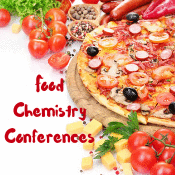Agricultural Chemistry
The goals of agricultural chemistry are to expand understanding of the causes and effects of biochemical reactions related to plant and animal growth, to reveal opportunities for controlling those reactions, and to develop chemical products that will provide the desired assistance or control. Every scientific discipline that contributes to agricultural progress depends in some way on chemistry. Hence agricultural chemistry is not a distinct discipline, but a common thread that ties together genetics, physiology, microbiology, entomology, and numerous other sciences that impinge on agriculture. Chemical materials developed to assist in the production of food, feed, and fibre include scores of herbicides, insecticides, fungicides, and other pesticides, plant growth regulators, fertilizers, and animal feed supplements. Chief among these groups from the commercial point of view are manufactured fertilizers, synthetic pesticides (including herbicides), and supplements for feeds. The latter include both nutritional supplements (for example, mineral nutrients) and medicinal compounds for the prevention or control of disease. Agricultural chemistry often aims at preserving or increasing the fertility of soil, maintaining or improving the agricultural yield, and improving the quality of the crop.
- Nitrogen Fixation
- Agricultural Chemicals
- Involvement of Organic & Inorganic Chemistry
- Low Carbon Agriculture for Sustainable Development
- Agrochemical Application & Technology
- Plant Breeding and Molecular Breeding
- Harvesting & Post-Harvest Technology
- Plant Breeding & Phytology
- Biosynthetic Enzymes & it’s Impacts
- Global Warming & Agriculture
